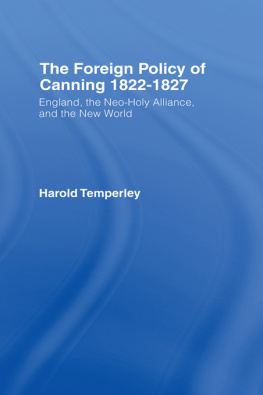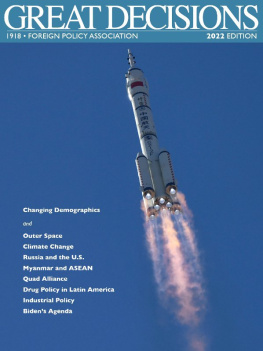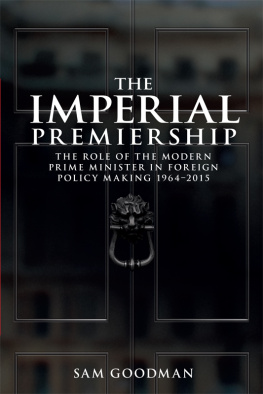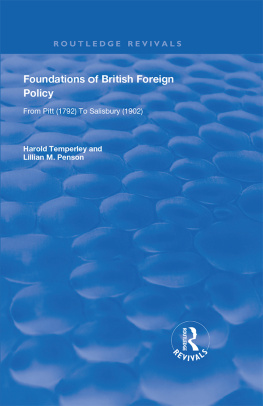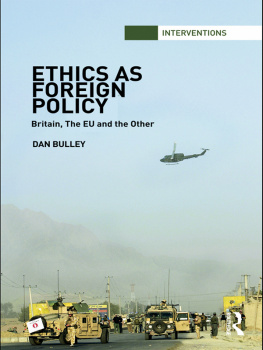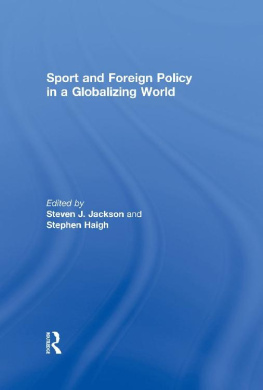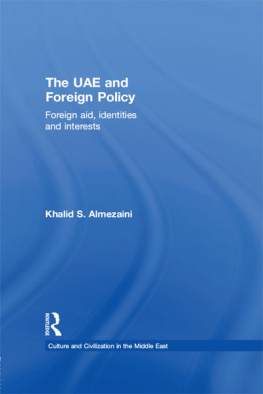Published by Frank Cass & Co. Ltd.,
2 Park Square, Milton Park, Abingdon, Oxon, OX14 4RN
by arrangement with G. Bell & Sons Ltd.
First Edition 1925
Second Edition 1966
Transferred to Digital Printing 2006
ISBN 071461517X (hbk)
Publishers Note
The publisher has gone to great lengths to ensure the quality of this reprint but points out that some imperfections in the original may be apparent
NEW INTRODUCTION
by
HERBERT BUTTERFIELD
HAROLD TEMPERLEY AND GEORGE CANNING
1. THE LIFE OF CANNING
IT is now over a quarter of a century since Harold Temperley died at the age of sixty. A new generation will hardly be able to realise the powerful position he once held amongst historians in Great Britain, on the Continent and in the United States. In so far as this was due to his published work and not to the play of a forceful personality, he owed it to something more than his remarkable technical accomplishment as a diplomatic historian. What impressed his colleagues was the character that he managed to give to his historical writing, the spirited way in which his mind seemed to work, and the extraordinary richness of the experience out of which his judgments sprang. For a long time, the chief basis of his fame was his study of the later Canningthe book that is reprinted here.
His working life is marked by a fairly clear division in 192425, when he completed and published the present volume. There had been a preliminary period when, as a post-graduate student, he had devoted himself to English constitutional history. He had moved in this direction because, in 1901, the prescribed subject for the Members English Essay Prize in Cambridge had been: The Office of Prime Minister under the Hanoverian Dynasty. He had won the prize in that year, when D. A. Winstanley, who was to devote so much of his life to this field, was amongst the group of people receiving honourable mention. For a time, after this, he himself had continued writing in the same field; but the significant beginning of his career came in 1905, when he published his Life of Canning and made the first of his many visits to Serbia. During the next twenty years, he was extremely prodigal in his activities and published books on a variety of subjects, but he was known to the world chiefly as an expert on Canning and an authority on the Western Balkans. Then, from 1925 (while the present work was appearing) down to nearly the end of his life, his principal concern was with the British Documents on the Origins of the War, which he had been commissioned to edit, along with Dr. G. P. Gooch. In a sense the two halves of his career overlapped, for he had been deeply involved in the First World War and had edited a little later the History of the Peace Conference of Paris. He had already been seriously engaged, therefore, with contemporary history.
What the future will never be able to recapture is the extraordinary exuberance of his personalitythe tremendous exhilaration with which his mind seemed to workan exhilaration which he was able to communicate to his pupils and others. There was an admirable uninhibitedness in all thishe gained more than he lost from the fact that he was never held in by the fear of looking silly before other people. As an historian, he pushed his mind forward into his material, somewhat as a thinker who is courting adventure. He was the reverse of that dry kind of scholar who contributes nothing out of his personality because he is governed chiefly by the fear of making mistakes. In his very earliest writings, the thing that is disconcerting is his exuberance in both thought and style. One of the first of his productionsan essay on the Hungarian novelist, Jokai, in the Contemporary Review for 1904is surprisingly florid and betrays the fact that he had ambitions of a more literary kind. His conversation showed the heartiness with which he would take an academic point or treat the paradoxes of lifethe energies apparently leaping out of his ebullient naturehis voice cracking before it exploded into a roar of laughter. He was lucky because he had been endowed with a plentiful supply of the forces that only required to be tamedthe horse itself was lively enough, so there was some point in applying the curb. Once he had brought things under control he could produce writing which showed ample signs of the resulting tension, giving the impression of powerful forces held in check.
This control, however, had not been quite achieved when, at the age of twenty-six, he produced his first bookthe Life He used the diplomatic despatches of Canning at the Public Record Office, some of his letters at the British Museum, and the papers and correspondence of Sir Robert Wilson, as well as a formidable body of printed material. These, he said, for the first time enable an estimate to be made of Cannings work and character. His information, he wrote,
might be corrected in detail from foreign archives and from private and as yet unpublished letters, but the evidence is comparatively complete and at least sufficient to remove some of the vast accretion of tradition and calumny, which has accumulated around the names of Castlereagh and Canning.
He was aware of the imperfection of his materials, therefore, and at a later date he considerably tightened his view of what a work of scholarship required. For the time being, however, he was satisfied that Canning has waited long enough for a biographer and to delay any longer in the hope that fresh materials will be found is as though Columbus were to put off crossing the Atlantic until steam was invented.
The result was a racy book, written with tremendous zest, a book which, in slashing strokes, made it clear why Canning had become Temperleys hero. A great part of his life-work He was opposed to parliamentary reform, but he believed in the mighty power of Public Opinion, embodied in a Free Press. Indeed, to the people he would grant anything save more direct representation.
He did much to extend and create a popular interest in affairs by the liberal publication of state papers, and by his popular progresses and circuits. He was the first minister of importance who habitually delivered addresses to his constituents. He was the first Foreign Secretary who elaborately explained and expounded his policy beyond the four walls of St. Stephens.
2. TEMPERLEY AND WEBSTER
A REMARKABLE feature of this early biography is the way in which Castlereagh is set up against Canning, and the hostile manner in which the former is treated. Temperley tells us that Fyffe, in his

